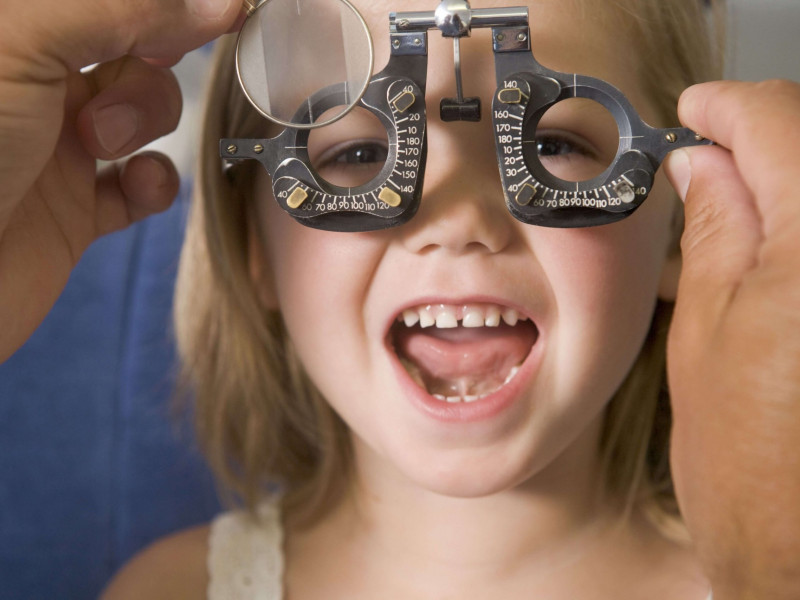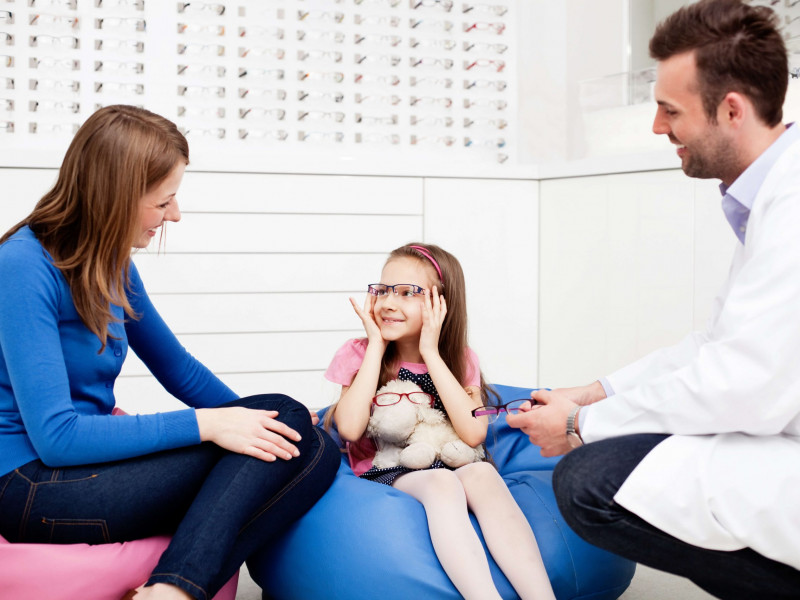
Children’s Eye Care
Being able to see clearly is important for a child’s overall development. Happily, most children have excellent sight but if there are problems and they are not picked up at an early age, a child may have permanently reduced vision in one or both eyes.
Looking After Your Childs Eyes
Some children may have vision screening done in pre-school or the reception year which is great. However, if you have concerns about your child’s eye sight before this time don’t hesitate to visit us for a consultation. This is especially important if there is a history of squint/lazy eye or needing strong glasses at an early age in the family. Don’t expect your child to tell you if there is a problem – children will assume that the way they see is normal.

The signs you should look out for
- One eye turns in or out, often more obvious when the child is tired
- They rub their eyes a lot (except when tired, which is normal)
- They have watery eyes
- They are clumsy or have poor hand to eye coordination
- They avoid reading, writing or drawing
- They screw up their eyes or frown when they read or watch TV
- They sit very close to the TV or hold books/objects close to their face
- They have behaviour or concentration problems at school
- They have unexplained headaches
- They complain about blurred or double vision

Protect your child’s eyes from the sun
Because children tend to spend a lot of time outside, it’s important to protect your eyes from the sun. Studies suggest that prolonged exposure to UV light may increase your risk of developing cataracts and age-related macular degeneration.
May sure your child’s sunglasses have UV protection and carry the British Standard (BS EN ISO 12312-1:2013) or CE mark. You can also protect your child’s eyes by making sure they wear a hat with a brim or a sun visor in bright sunlight
